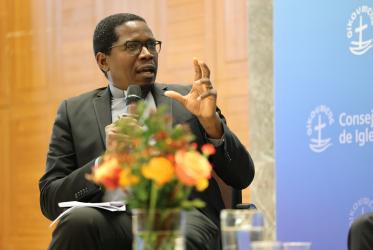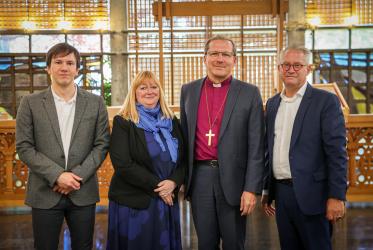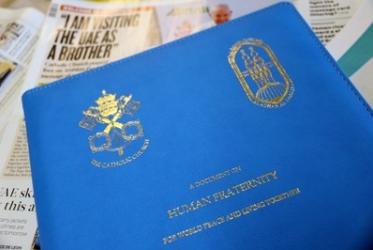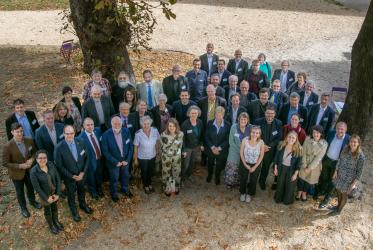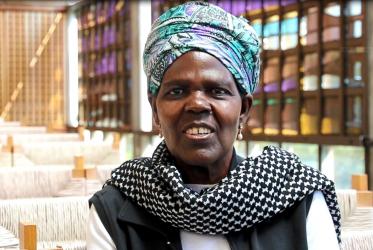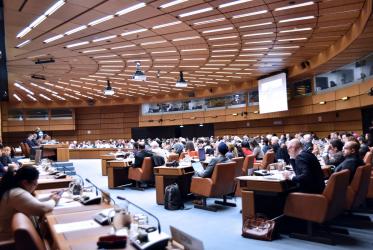Displaying 1 - 20 of 53
07 February 2024
WCC hosts visitors from Finland, Germany, and Sweden
29 September 2023
Rethinking Ecological Relationships in the Anthropocene era
11 - 13 February 2021
Brazilian churches call for transformative racial justice
23 November 2020
Driven by God’s grace and a sense of duty
05 November 2020
WCC well-represented in Religions for Peace leadership
07 October 2019
WCC moderator “A call for equality in God’s house”
08 April 2019
Interfaith Rainforest Initiative expands
12 February 2019
#WCC70: Nathan Söderblom, ecumenical pioneer
29 August 2018
#WCC70: A story of life
07 June 2018
Turning plans into action to prevent incitement to violence
14 February 2018
Trying to do good for the world
18 December 2017
